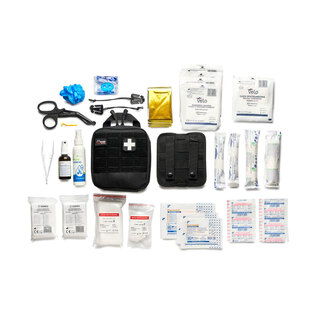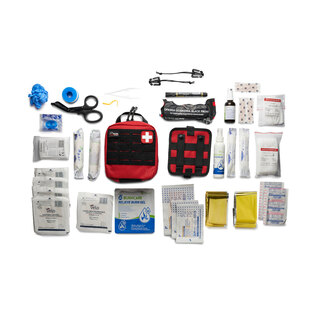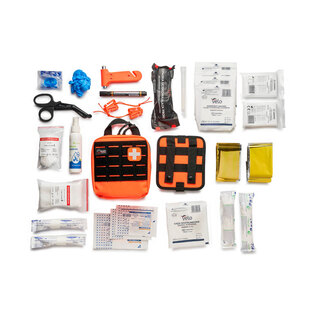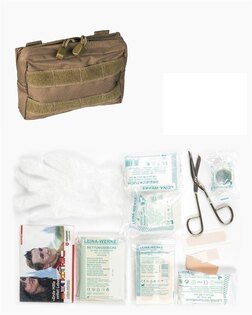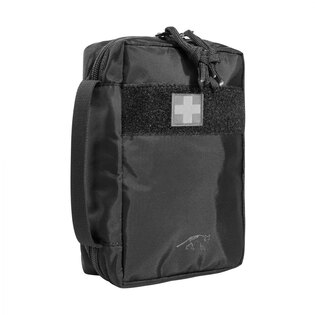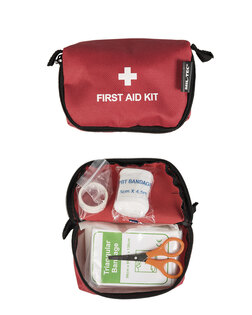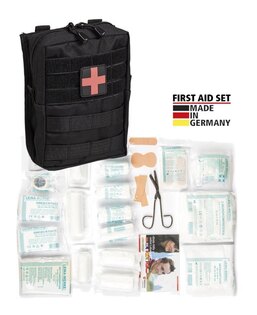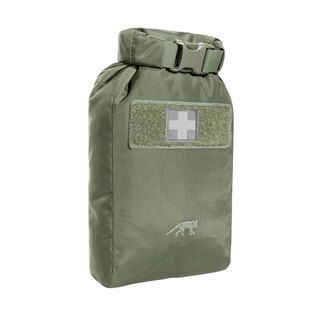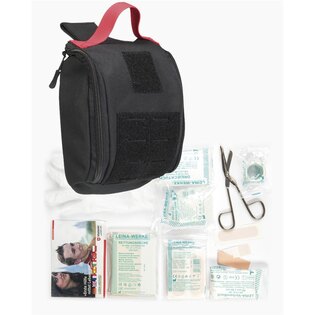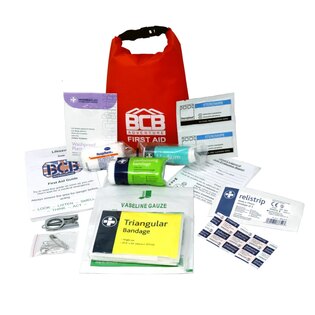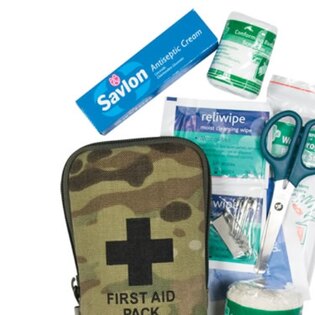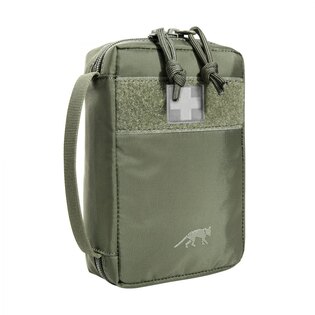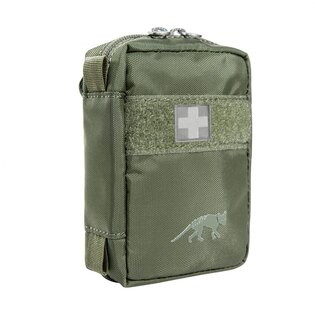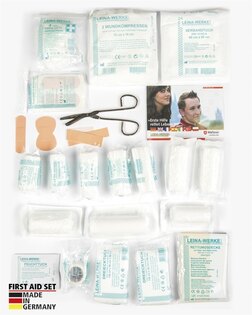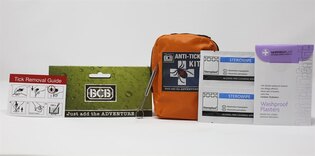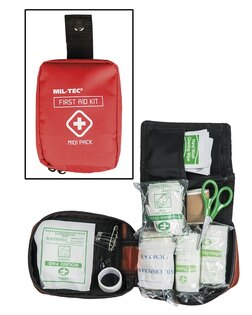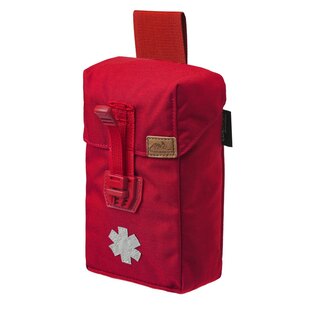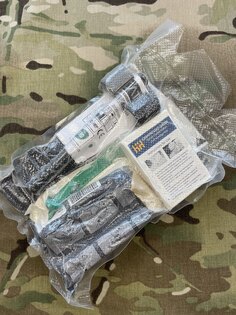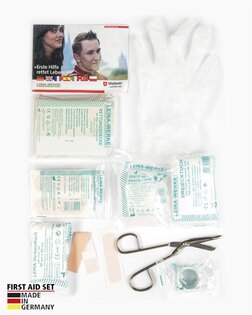What to do if you get stung?
Even a carefree summer has its few beauty flaws. One of them is, for example, stinging insects, which can be really persistent at certain times. While wasps and hornets operate more in the second half of summer and early autumn, the main season of bees is in full swing right now. And even if for some people a sting is just an unpleasant experience accompanied by swelling and itching, for others it can develop a dangerous allergic reaction. Do you know how to properly treat a puncture wound and when to call the doctor?
Immediately after the sting, a dose of poison is released into the bloodstream through the sting. After that, it depends on how the body reacts to it. In most cases, there is only a local reaction, which is manifested by pain, itching and swelling, which is absorbed within a few days. But a life-threatening allergic reaction can also develop. It is therefore important not to panic, but at the same time not to underestimate the situation and monitor the manifestations.
Risk factors
- The victim is a child, an elderly person or an allergy sufferer.
- Sting in the face, head or neck – even in a healthy person.
- A puncture to the tongue or the inside of the mouth is particularly serious – there is a risk of acute respiratory problems due to swelling in the airways. Always call for medical help!
- Multiple stings, in extreme cases, can lead to kidney failure.
- Attention – an allergic reaction can develop even in a person who has never had an allergic reaction to a sting before!
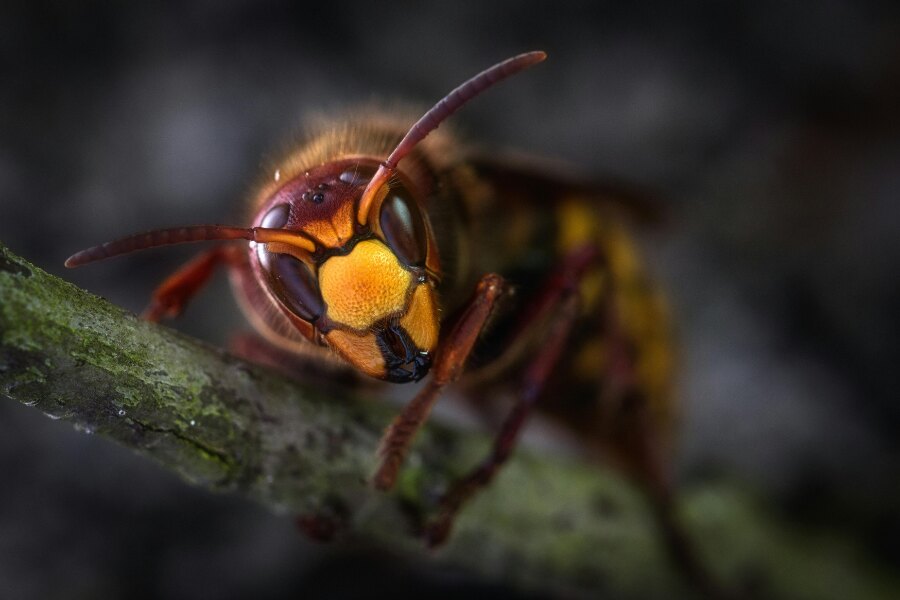
When bitten by an insect, always monitor the condition of the victim.
Bee, wasp, or hornet?
The bee and its sting
The bee sting is specific in that it remains embedded in the skin thanks to the return hooks. Unfortunately, the bee soon dies. The sting also contains a venom sac that releases the venom gradually, even within a few minutes after the injection. It is therefore important to remove it as soon as possible and not to squeeze the venom sac.
Try to carefully scrape off the sting with your fingernail, the back of a knife or tweezers (preferably disinfected, but we don't always have that option). When you pull out the sting with your fingers, you would probably squeeze the contents of the venom sac into your body and the condition could get worse.
Wasps that often bother when eating
Unlike bees, wasps and hornets can sting repeatedly. We all know it, in the summer clouds of wasps are mainly around food, drink or garbage. Therefore, be very careful with wasps when eating and drinking so that you don't swallow one and get stung in your tongue or mouth. A few lines below, we'll talk about how to deal with such a situation, should it happen to you or someone else.
Hornet – a feared predator
Is a hornet sting the worst? As for the pain, yes. This is because it has the biggest sting, and therefore also the deepest puncture (and punch). But you might be surprised that it contains about 50 times less poison than a wasp or bee sting. Rumors that just a few hornet stings are enough to kill a person should therefore not be based on truth (we better not check it ourselves) unless the person concerned is allergic to insect stings. At least not in the case of our central European hornet (a different story is the mandarin hornet, which occurs in Asia and its sting can be really dangerous). Even here, however, there is a danger of an acute allergic reaction and anaphylactic shock, so always monitor the symptoms after being stung.
How to react when bitten by an insect?
We're getting down to the nitty gritty – what to do if you or someone else gets stung.
Before you start treating
- Don't panic.
- Move to safety. For example, if you are near a bee hive or a bee nest, do not risk another attack and move a little further, to a safer place.
First aid
- Check the injection spot. If a sting remains in the wound, it is most likely a bee sting. But this sting will continue to release poison into the body, so it has to get out quickly...
- If there is a sting in the wound, remove it as soon as possible. Carefully scrape it off, e.g. with a fingernail, the back of a knife, or pull it out with tweezers. Be careful not to squeeze the contents of the venom sac into your skin.
- Carefully wash the affected area under running water.
- Cool the swelling. A red and painful swelling forms at the site of the sting (for all types of insects). You can cool it down with cold water, use ice or apply cold compresses. Rub the skin with Fenistil, e.g. gel with propolis is also effective. Our grandmothers advised to apply a sliced onion or lemon to the affected area.
- In case of a moderate reaction, you can give antihistamines. If pain and swelling persist, but no more severe reaction develops, you can give an antihistamine in tablets or drops, eg Fenistil, Claritin, Zyrtec.
- If there are multiple foci, the swellings merge into one large one, extensive urticaria has appeared, the swelling has a purple color or does not respond to treatment for a long time, consult a doctor.
- Rest mode, shade and plenty of fluids.
- Observe and communicate with the afflicted person. If the condition worsens or if something does not seem right, call 155 (112 or 911, depending on your region) or seek medical help.
When to call an ambulance
- If a person is allergic to insect stings.
- Allergic reaction, anaphylactic shock.
- General problems appear – problems with breathing or swallowing, vomiting, fever, disorientation...
- Stinging in the tongue, inside the mouth.
- Stinging in the head or neck – especially in children and the elderly.
- If something doesn't seem right to you.
Avoid the sting
Prevention is always better than cure. It is therefore good to follow the following few principles, especially in summer:
- Be careful when eating, drinking and eating ice cream.
- Do not irritate the insects, do not make sudden movements.
- Stay at the trash can only for as long as necessary.
- When walking barefoot, look below your feet.
Readers are further interested





































































































































